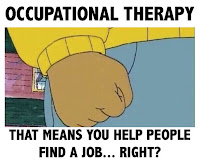Let's Play! - Types of Play

We looked at the different stages a child goes through while developing through play. Those stages are commonly referred to as the 'Social stages of Play Development' and they are important and vital to your child's social development. At the same time, Play Development is also classified according to type or nature of play behaviour. These 'Types of Play' also largely contribute to a child's development and learning. Children’s play activities mainly fall under two main categories: Structured Play and Unstructured Play. Structured Play : Like the name suggests, Structured play, is goal-oriented play, or 'play with a purpose' kind of activity which is generally adult-led or supervised. It may involve a specific task that would help a child learn a new skill. eg: an ADL activity like buttoning, tying a shoe lace, etc, or a specific learning objective like days of the week, or colours of the rainbow. Structured play involves following rules or instr...


